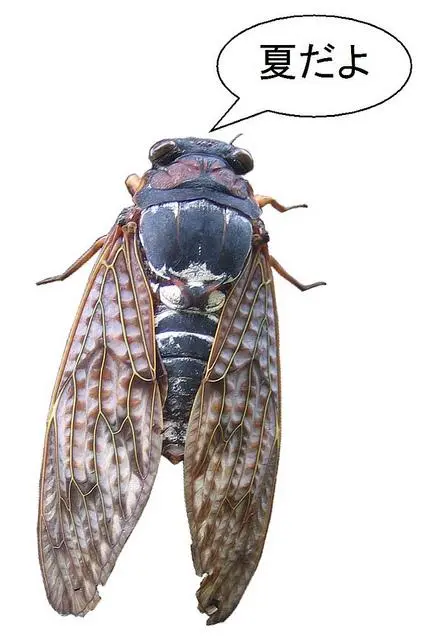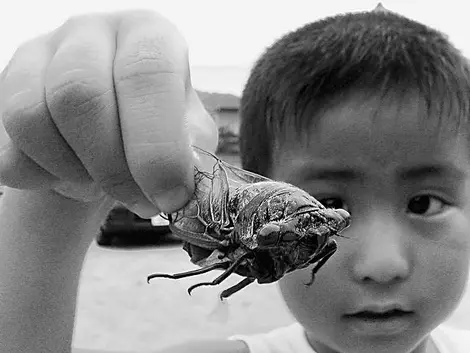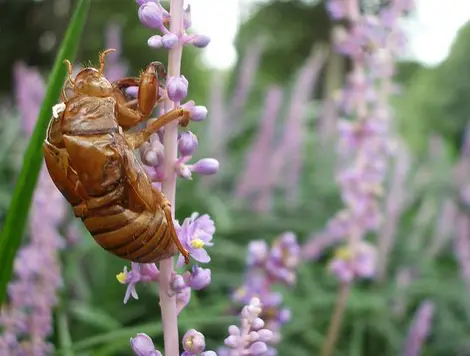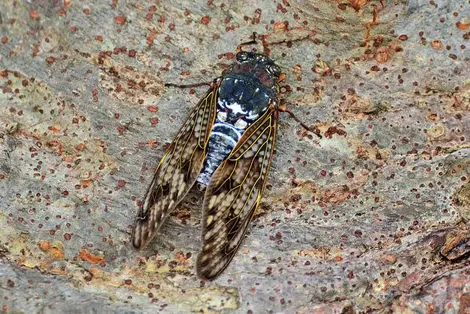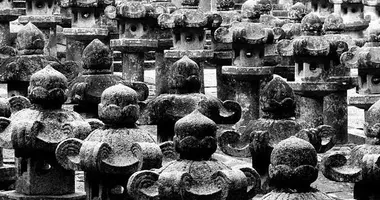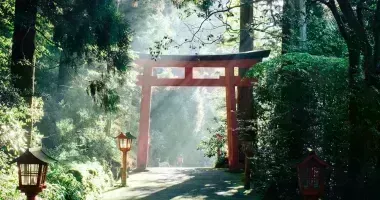Cicadas 蝉
The Sound of Summer
In Japan, insects have an important place in popular culture: cicadas are considered a symbol of summer.
Japanese attachment to nature is made through insects, mushi, which hold an important place in the eyes of the Japanese. Particularly the cicadas, semi.
Summer memories
Typhoons and heavy heat are typical of summer in the archipelago, but for the Japanese, summer hasn't officially begun until the song of the cicadas is heard.
Insect hunting is a common pastime of the Japanese, and is especially popular in summer with children. Nets and plastic cages in hand, they go to catch the cicadas and other insects like kabuto-mushi (scarab-rhinoceros); Seeing larvae hatch is a privileged sight.
Summer is also associated with fireflies. In the past, the Japanese also liked to catch them, but now like admire them better!
Read more : Fireflies in Japan
The song of the cicadas
Of the 2,000 species of cicadas that exist around the world, you will find about thirty in Japan. Each species has a specific song, and the aficionados of cicadas amuse themselves by recognizing them by ear! Here are 5 common species of the city of Tokyo:
- Niinii-zemi (Platypleura kaempferi)
The niinii-zemi appear from June to September. They are the same color as the trees, so they are difficult to spot. You'll find them in forests and parks.
- Abura-zemi (Graptopsaltria nigrofuscata)
The abura-zemi is so called because its song resembles the sound of frying oil (abura means "oil" in Japanese). The abura-zemi thus sings: "jin jin jin". It is also the largest of the cicadas, as it measures from 35 to 40 mm.
- Higurashi-zemi (Tanna japonensis)
Higurashi-zemi love bushy foliage and sing only in the afternoon. The song is more melancholy: "kana kana kana".
- Minmin-zemi (Oncotympana maculaticollis)
The song of the Minmin-zemi is surely the best known of all, as it's often used in cartoons and movies. Small in size, they are recognizable by their green and black colors. The song of the Minmin-zemi is easily recognizable: "miin-miin-min-min-miiiin"
- Tsukutsuku-boshi (Meimuna opalifera)
The Tsukutsuku-boshi cicada is one whose song is the most complex. So listen carefully!
- Kuma-zemi (Cryptotympana facialis)
Kuma-zemi, the "cicada bear", is named because of its exceptional size. Usually found in subtropical areas, it is now increasingly present in urban areas like Tokyo. His song goes like this: "chan chan chan"
The cicadas spend 2 to 3 years underground, where they are only nymphs. Once out of the ground, they live only a few weeks, mate, and then die. The shortness of their existence reminds the Japanese, through nature, of the vanity and fleetingness of existence.
"The song of the cicadas leaves nothing visible from their near death."
Matsuo BASHO (1644-1694)





